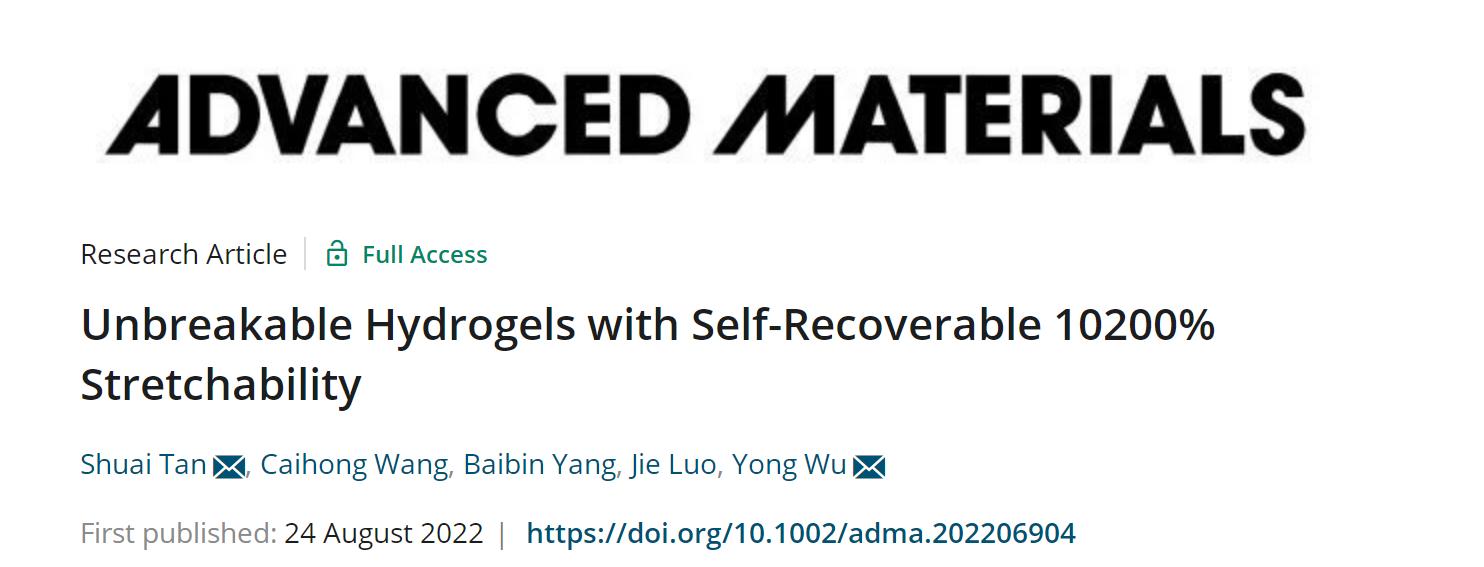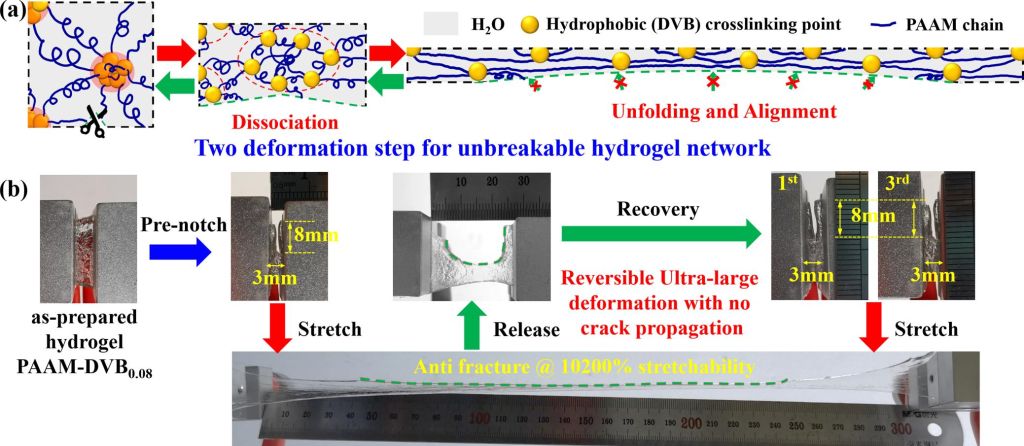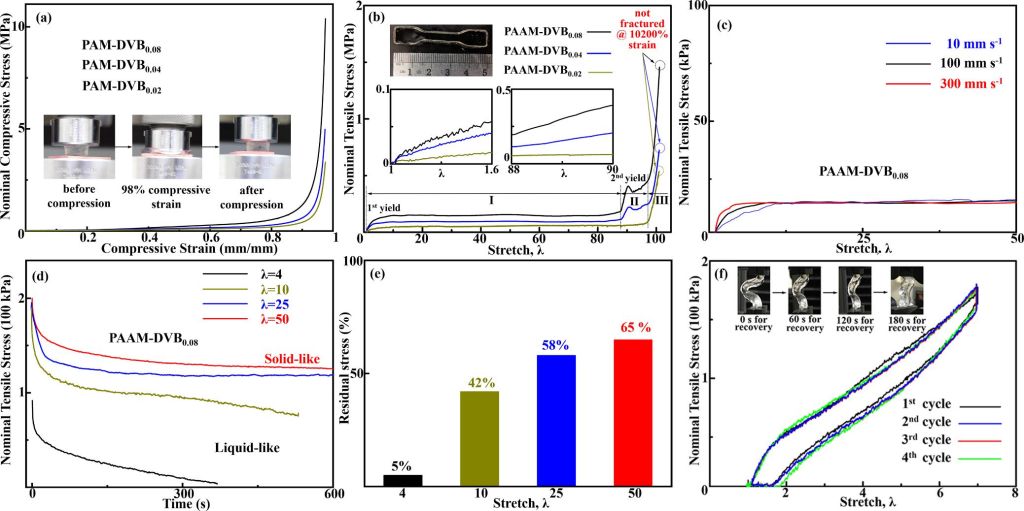Professor Yong Wu and Associate Professor Shuai Tan from the School of Chemical Engineering have proposed a new method to construct high-strength anti-fatigue hydrogel network through hydrophobic covalent crosslinking. They studied the ductility, toughness, self-recovery and anti-fatigue crack propagation of hydrogels, and clarified the detailed mechanism of energy dissipation in hydrogels. Their research findings titled “Unbreakable Hydrogels with Self-Recoverable 10200% Stretchability” was published in Advanced Materials on August 24, 2022. Shuai Tan is the first author and co corresponding author. Yong Wu is the other corresponding author.

“Design of tough hydrogels maintaining structural integrity under multivariable mechanical loads remains huge challenging because the anticipated characteristics such as stretchability, strength, toughness, and fracture resistance can hardly be compatible. Herein, we propose a simple but robust hydrogel network formed by copolymerization of divinyl benzene with acrylamide in micellar solutions to achieve both ultra-high fracture resistance and self-recoverable stretchability. The network provides dynamic association of hydrophobic domains and homogenous crosslinking of hydrophilic chains, which showed step-by-step deformation process for effective energy dissipation. The dynamic associations allow recoverable small deformations of hydrogels, then the homogenous crosslinking ensures reversible unfolding and alignment of polymer chains to self-strengthen for ultra-large deformations without crack propagations. The resultant hydrogels exhibit comprehensive unbreakable feature with self-recoverable ultra-high stretchability (100% recovery from 10200% strain), superior fracture resistance (fracture work > 18.8 MJ m–3, toughness > 26 kJ m–2), and anti-crack propagation and fatigue (fatigue threshold:∼2.5 kJ m–2). Even the pre-notched hydrogels can intriguingly undergo tens cyclic loads at 10200% strain and thousands cyclic loads at 200% strain without noticeable changes in mechanical performance. The robust network prepared from homogenous hydrophobic crosslinking provides a facile approach and a new mechanism to explore tough hydrogels with superior anti-fracture and extreme self-recoverable deformability for diverse applications.” (Abstract)

Two deformation step for unbreakable hydrogel network

A. Nominal tensile stress B. Nominal compressive stress
This study has laid an important foundation for the further development and application of high-strength hydrogels. The research was funded by the National Natural Science Foundation of China (2217823521805199), the China Postdoctoral Science Foundation (2019m663494) and the "star of chemical engineering" talent project of Sichuan University.
https://doi.org/10.1002/adma.202206904
